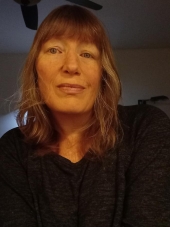












 1
1




Never doubt that a small group of dedicated people can change the world, Indeed it is the only thing that ever has. Formerly pa_friendly_guy_here
 2
2




Idle dreamer
 1
1




 1
1




 1
1








 2
2




Seed the Mind, Harvest Ideas.
http://farmwhisperer.com




Aria Stroph wrote:I've been interested in permaculture and natural building for a few years now, and have been reading and watching videos voraciously. I'm currently in school (graduating in May!), and my partner and I have been considering what we want to do next. Our "dream" is to live on a plot of land (~5 acres, though the more the better) where we can build a modest home and produce most of our family's basic needs through permaculture practices (particularly woodland gardens/food forests, aquaculture, and heavy emphasis on "useful" fungi), with small sources of income to supplement. Of course, with both of us having been students so recently, we have very little money, and a small chunk of debt (student loans, so not worth it!). So that's the situation, now for the "plan":
At the end of May, once I have completed school and my partner's current job contract is up, we would very much like to move away, leaving behind the city and the life of renting apartments for $8,000 a year. We have somewhat narrowed our desired destination down to three options: Northern Florida, coastal North Carolina (or maybe SC), or Western Oregon (the warmer, the better). Each have their pros and cons, which I won't get into here, but suffice it to say that I'm pushing for FL due to the affordable land, low taxes, and warm weather (I want to grow subtropical plants!).
I would love to just jump right in, buy a plot of land, and magically build a house to live in so we can begin working on the gardening aspects, but alas, I'm no millionaire. We need time to save money, research available land, and so many other things first. However, I'm scared of getting trapped in the "rent to survive" system, living paycheck to paycheck and barely saving a dime while wasting time. I'm so eager to get started, I almost can't bear having to wait until next summer! I would go crazy knowing that it would be many years before I can put my first trees in the ground.
As it stands, I think we could find the money to purchase a few acres somewhere affordable like north FL by the time summer rolls around. But this would leave us without much money, and no place to live (unless we get extremely lucky and find cheap land with a livable home on it). Though I would be willing to live in a tent for a year while building a house, my partner wants (and deserves) slightly more modern accommodations. We've discussed many options, the most reasonable of which are probably either purchasing a used camper or RV, or building some sort of temporary, sturdy shelter.
So, as long-winded as this introduction has been, the advice I am seeking is: Is this possible? Assuming we can afford the land and have...let's say $3000 left over, what methods could we pursue to stay alive while working towards our dream? I'm willing to have a proper job if necessary, of course, but time spent working for money is time not spent working on the house/garden/whatever, and as I mentioned before, I don't want to become trapped wasting time.
I would greatly appreciate a discussion on cheap & quick-to-build shelters, obtaining affordable land, and surviving on little money while building a homestead. Other topics, such as building/zoning codes in north FL or whatever you think is relevant, are also welcome. Thanks for your help, this is a great community!
 3
3








Brenda
Bloom where you are planted.
http://restfultrailsfoodforestgarden.blogspot.com/




Just call me Uncle Rice.
17 years in a straw bale house.




Smile4u, Inc. - Land Sales
www.smile4uinc.com





Chris Badgett
Cocreator of Organic Life Guru. Have you seen what's happening over there?




Medicinal herbs, kitchen herbs, perennial edibles and berries: https://mountainherbs.net/ grown in the Blue Mountains, Australia

|
pie. tiny ad:
Creating your Off-Grid Homestead by Teri Page
https://permies.com/wiki/207444/ebooks/Creating-Grid-Homestead-Teri-Page
|






